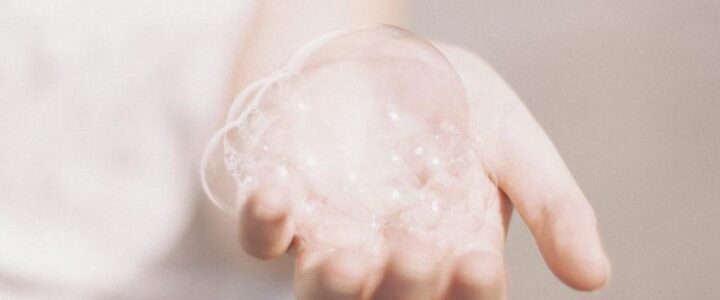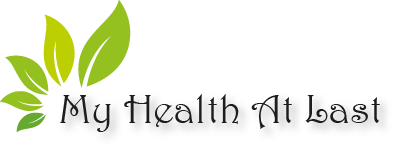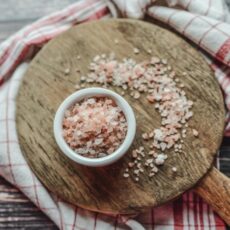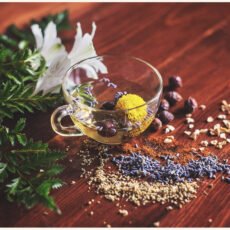
Picture by – Unsplash – Matthew Tkocz
Learn the hidden truths about anti-bacterial handwash and hand sanitizers so that you can make an informed decision about using it.
Just one germ can turn into 8 million germs in just one day, and over 3 quarters of germs that cause illnesses are spread by your hands.
This is why washing your hands and practicing good hand hygiene is so important. You do it to kill and remove the germs on your hands so that you avoid spreading them to other parts of your body, and surfaces you touch.
With that in mind, it makes sense that you should use some sort of antibacterial product and antibacterial hand soap to deal with germs on hands, to do the best job of removing them. These kinds of soaps are designed to kill the germs more effectively than standard hand soap.
The problem is, many people don’t realize the problems with antibacterial products like hand soap and hand sanitizers. There are some potential issues, and to put it bluntly, potential dangers to these products.
Whilst we aren’t here to tell you what to do, we do want to help you stay informed and make the best decision for your family’s health. Let’s take a look at just some of the reasons that antibacterial soap might not be the kind of product you want to use:
It Doesn’t Work Any Better Than Standard Soap
There is a lot of evidence to suggest that antibacterial soap and any hygiene wash with antibacterial chemicals are no better at stopping the spread of disease than regular soap.
This article by the FDA explains the science, and clearly states that there is not enough science to suggest that antibacterial hand soap is any more effective at preventing illness, compared to any soap and water.
Supporting The Growth Of Antibiotic-Resistant Bacteria
Antibiotics are used sparingly because they are aiding the growth of antibiotic-resistant bacteria. Antibacterial soap is thought to be doing the same thing.
Triclosan is thought to cause mutations to bacteria which help the bacteria protect itself against the ingredient and protect itself against antibiotics too. The FDA has even banned the ingredient in many hand soaps because of concerns about this very issue.
You can read more about a scientific study to support this issue here.
Hormone Disruption
Triclosan is a common ingredient used in antibacterial soaps. Unfortunately, this ingredient has been considered unsuitable for hygiene products by many professionals, for some time.
It is thought to disrupt the hormones inside the body, which can have detrimental effects on the health of the individual over time. You can find out more about the science behind this issue here.
Muscle Function Impairment
Triclosan is thought to have an impact on the cells in the muscles, causing muscle function to be affected negatively.
Boosting Allergies
Allergies are known to be rising across the world and currently, more than 50 million Americans experience some sort of allergy every single year.
One of the suggested reasons allergies are thought to be on the rise is because it is thought we are all being so overly sanitized in our environment can hinder the immune system. Triclosan has also been linked to causing problems in the body that lead to food sensitivities and allergies. There are numerous studies to support these links including this study funded by the NIH.
Environmental Issues
The chemicals in the products we use are known to cause environmental issues when they go into the water system. When it comes to antibacterial soap, the problem is far-reaching when it comes to negative environmental impact. The water is treated when it goes through the water system, but some antibacterial chemicals are difficult to remove. Some may not even be entirely removed when the water gets through the system. This can then go onto causing massive issues in the environment. Some healthy options that are not harmful to you or your family, or the environment.
Water with antibacterial chemicals leaking into the ground, into the sea, into crop irrigation systems, back into domestic water supplies is never going to be a good thing. It is thought triclosan chemical exposure is now so far-reaching, it is in every single person on the planet. It has even been detected in the breast milk, urine, and nails of humans. Bioaccumulation has broadly been accepted, scientific communities just don’t know the extent of this yet.
Some Bacteria Is Good.
In most recent times there has been concern about the removal of all bacteria because of so much cleaning and the use of antibacterial products. We actually need some bacteria to function. Some bacteria are essential for digesting and to fight nasty bacteria. Antibacterial products like foaming antibacterial handwash can outright destroy all bacteria and cause the good bacteria to struggle to do what it needs to do to keep us healthy. Even worse, if it is true that triclosan is within us all, it could well be killing all the good bacteria from within us, and we have no awareness of this at all.
It is scary to know that your hand hygiene habits could be exposing you and your family to unknown risks. Even worse, hand cleansing could be putting these chemicals out into the world in numerous ways, free to harm others over time.
If you are working in healthcare and need to use surgical handwash for your job, you might not be able to reduce your exposure to antibacterial products.
Antiseptic handwash can be an important part of the job, and it may be all you have access to.
However, liquid soaps for domestic users can be non-antibacterial and be just as effective as those containing antibacterial chemicals. If you can avoid using antibacterial products, it could be important that you do so. Chemical overload in a lot of our products we use causes a lot of our health issues today in everyone. Especially young children.
Know the facts, do your research, and make an informed decision about your hand hygiene and your own children’s health. It could make a huge difference to your health, the health of your family, and the health of the planet. Here are some products I recommend. A lot of people don’t read labels or don’t know what is in the products you use here are some tips.
- Type in the ingredients name in google, read what you’re putting into your body.
- If you don’t know what ingredient is or can not pronounce it will probably be bad for you.
- Type in dangers of your ingredients you’re looking for. Then get ready for a shock
- Go for a natural product vegan or organic fewer chances of any chemicals.
- Most hand washes these days are just chemicals and are very quickly absorbed into our body from the vaporization in the shower and through the pores of our skin opening up in hot water.









